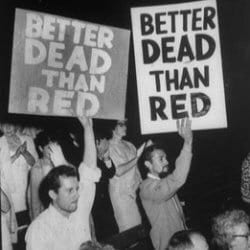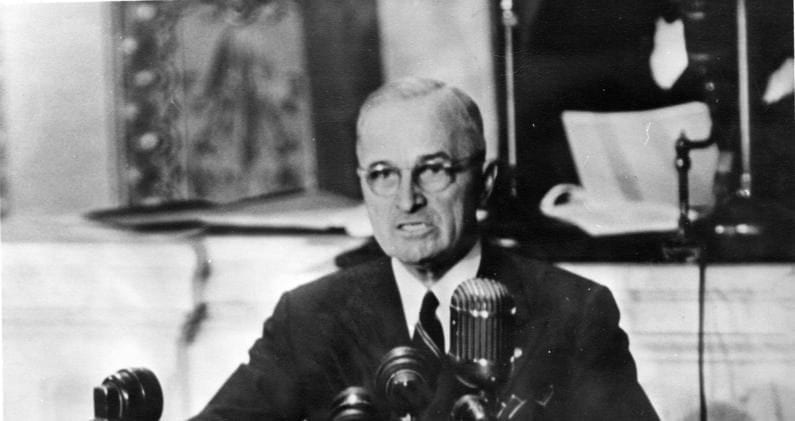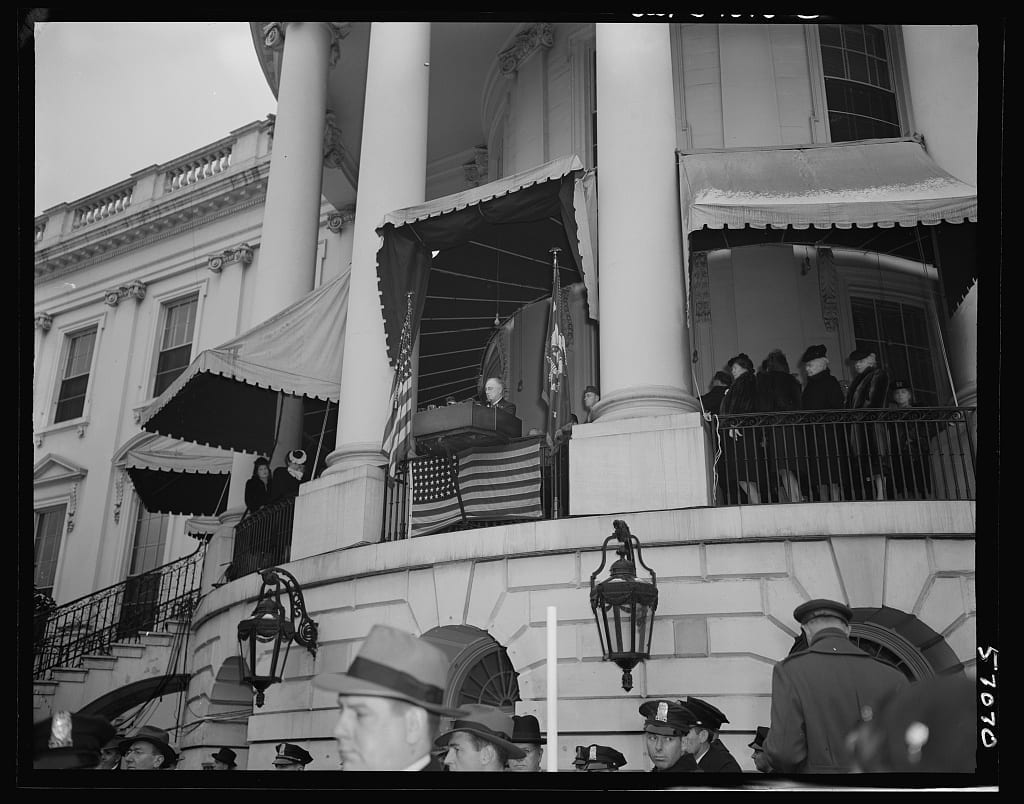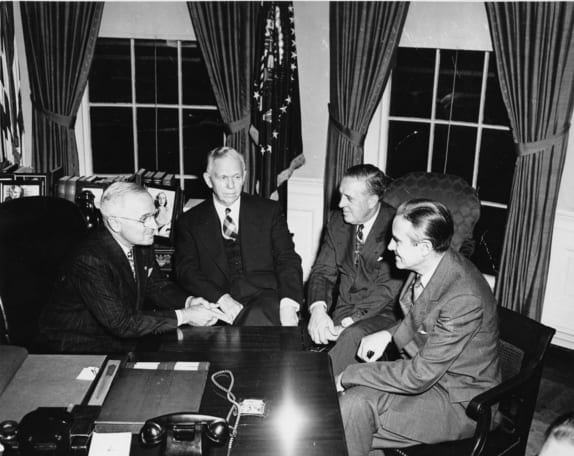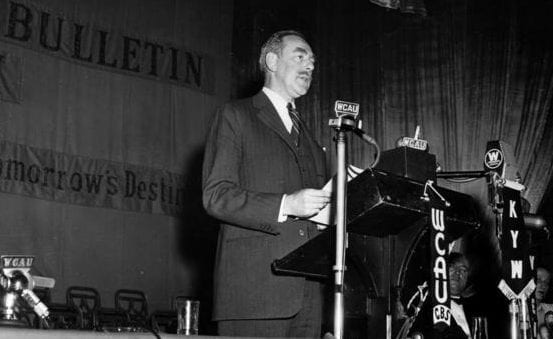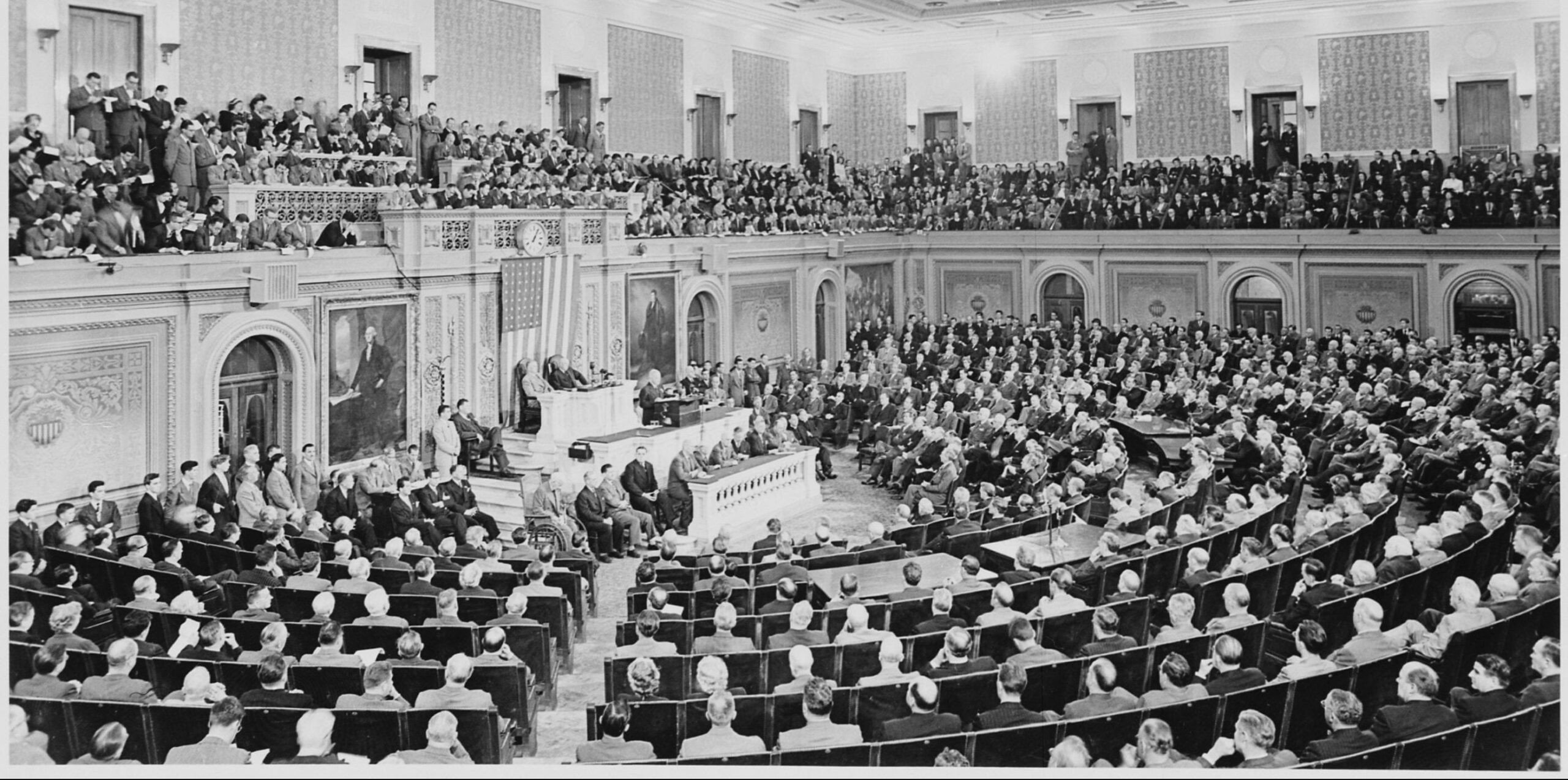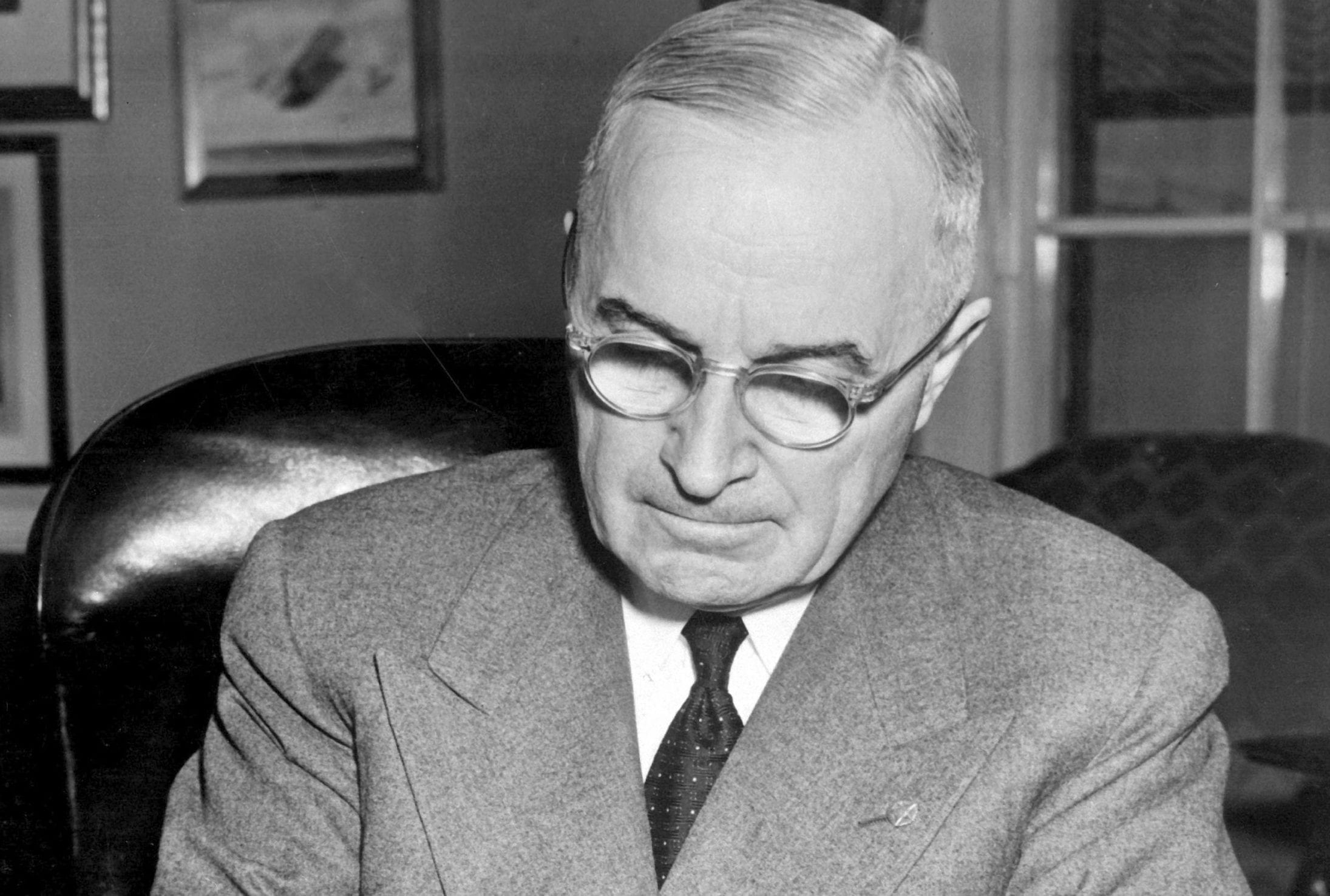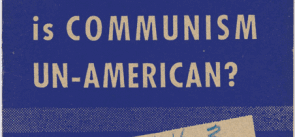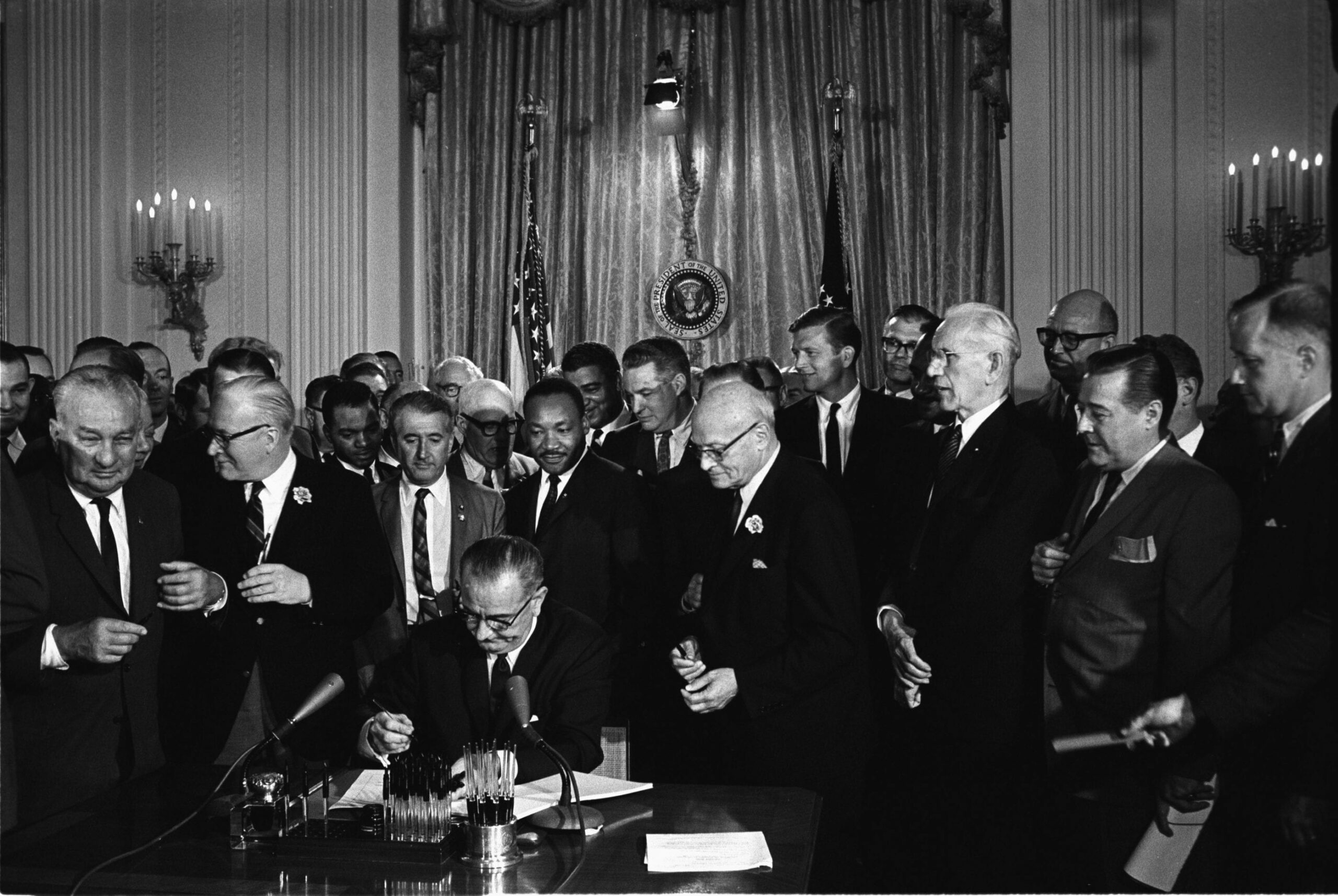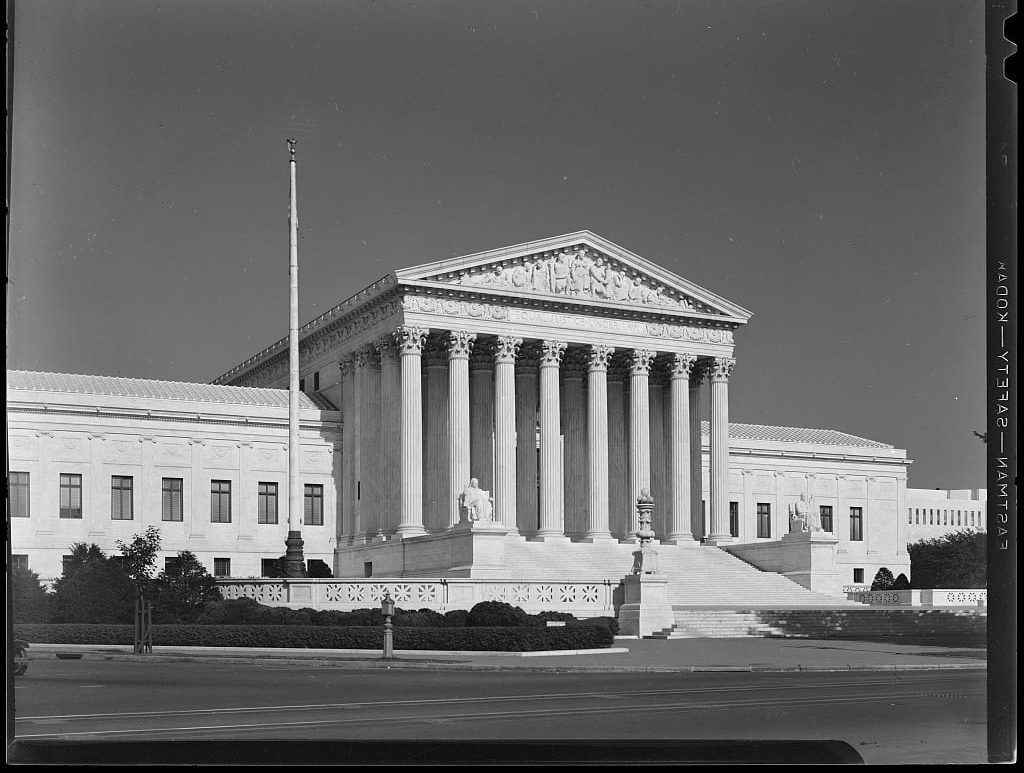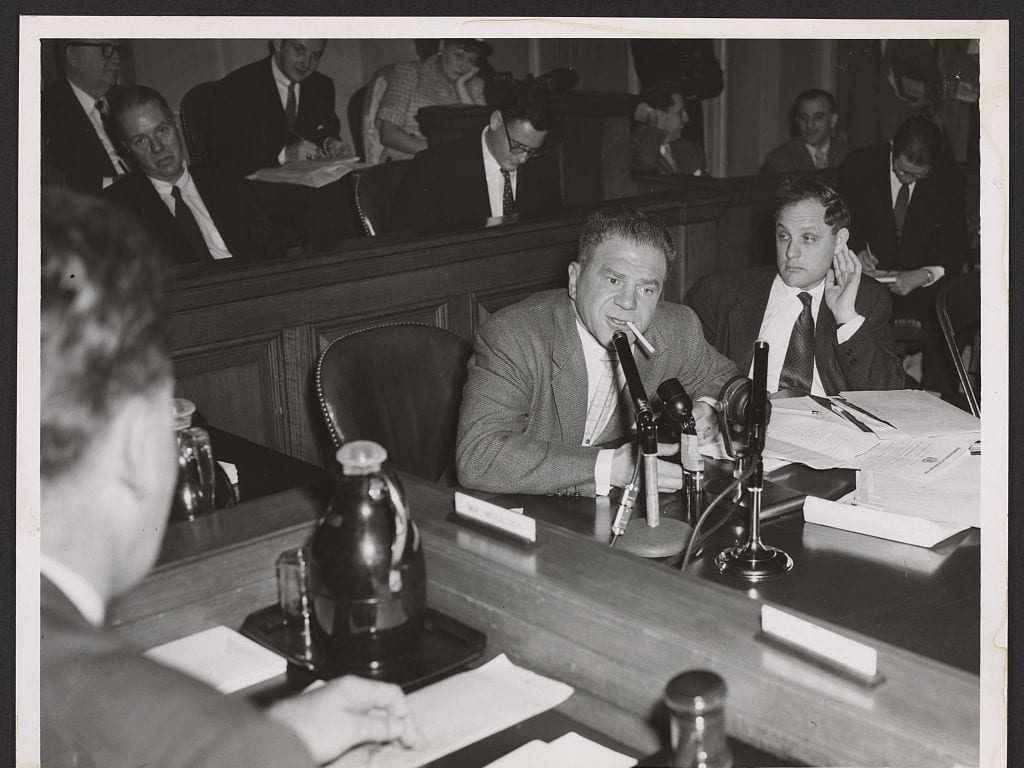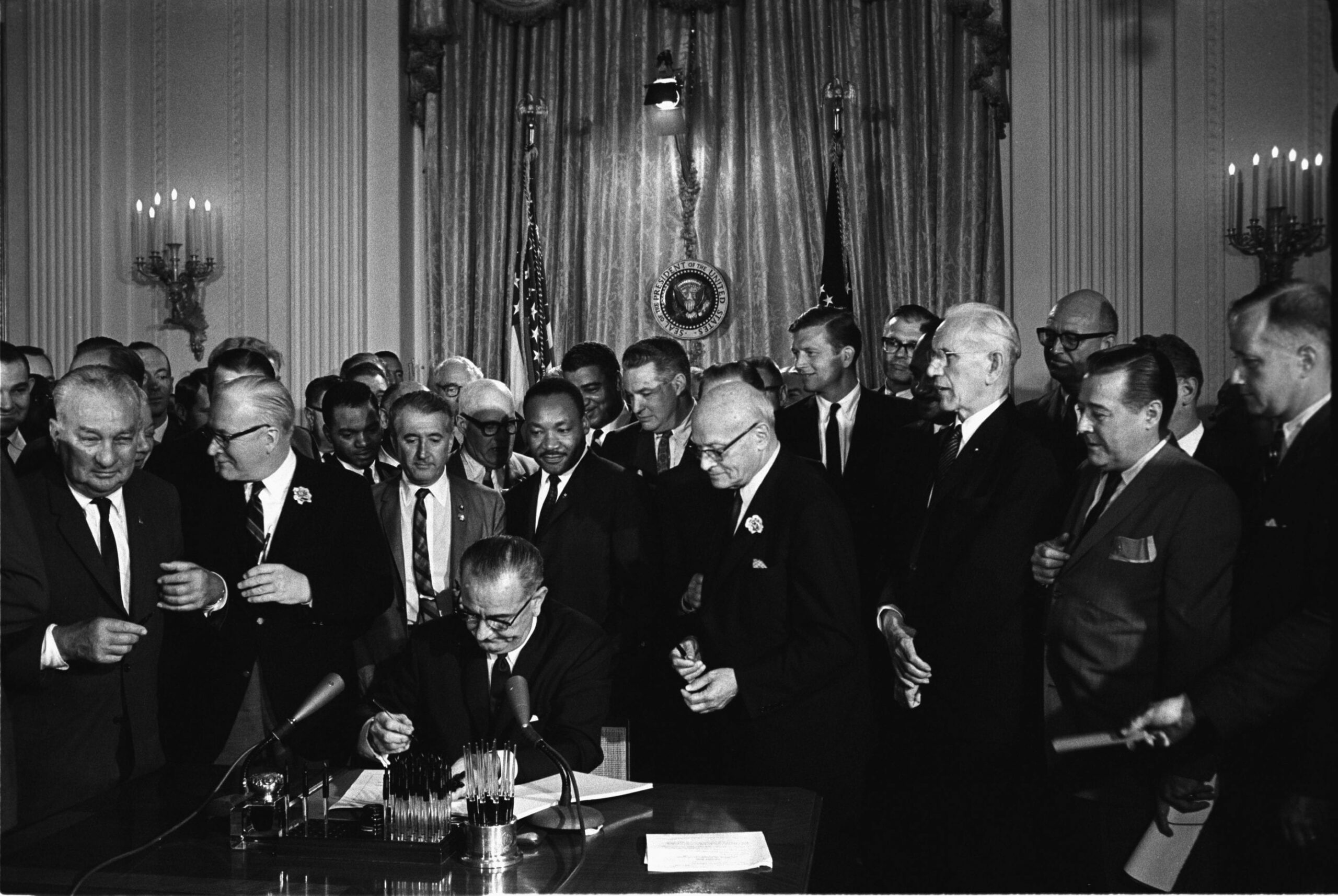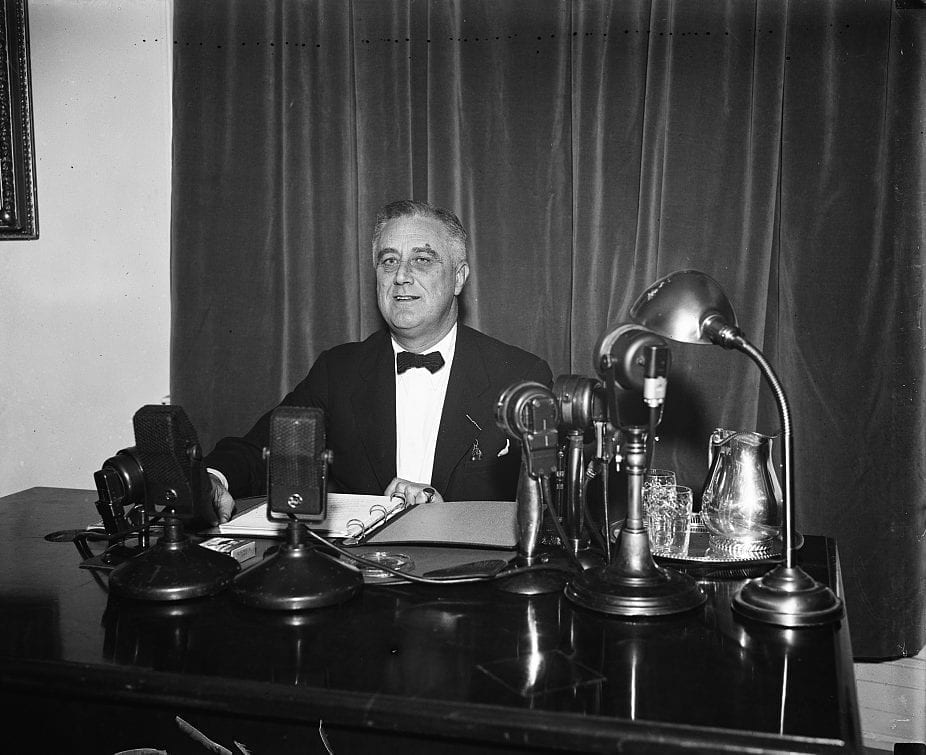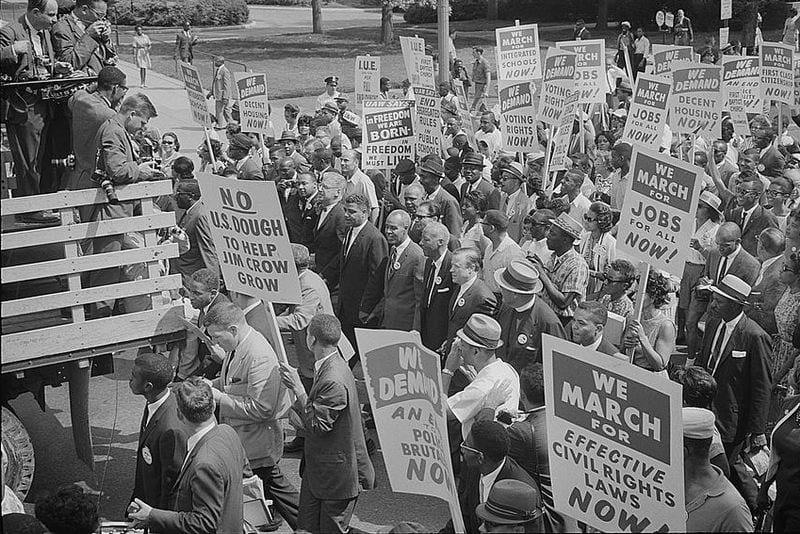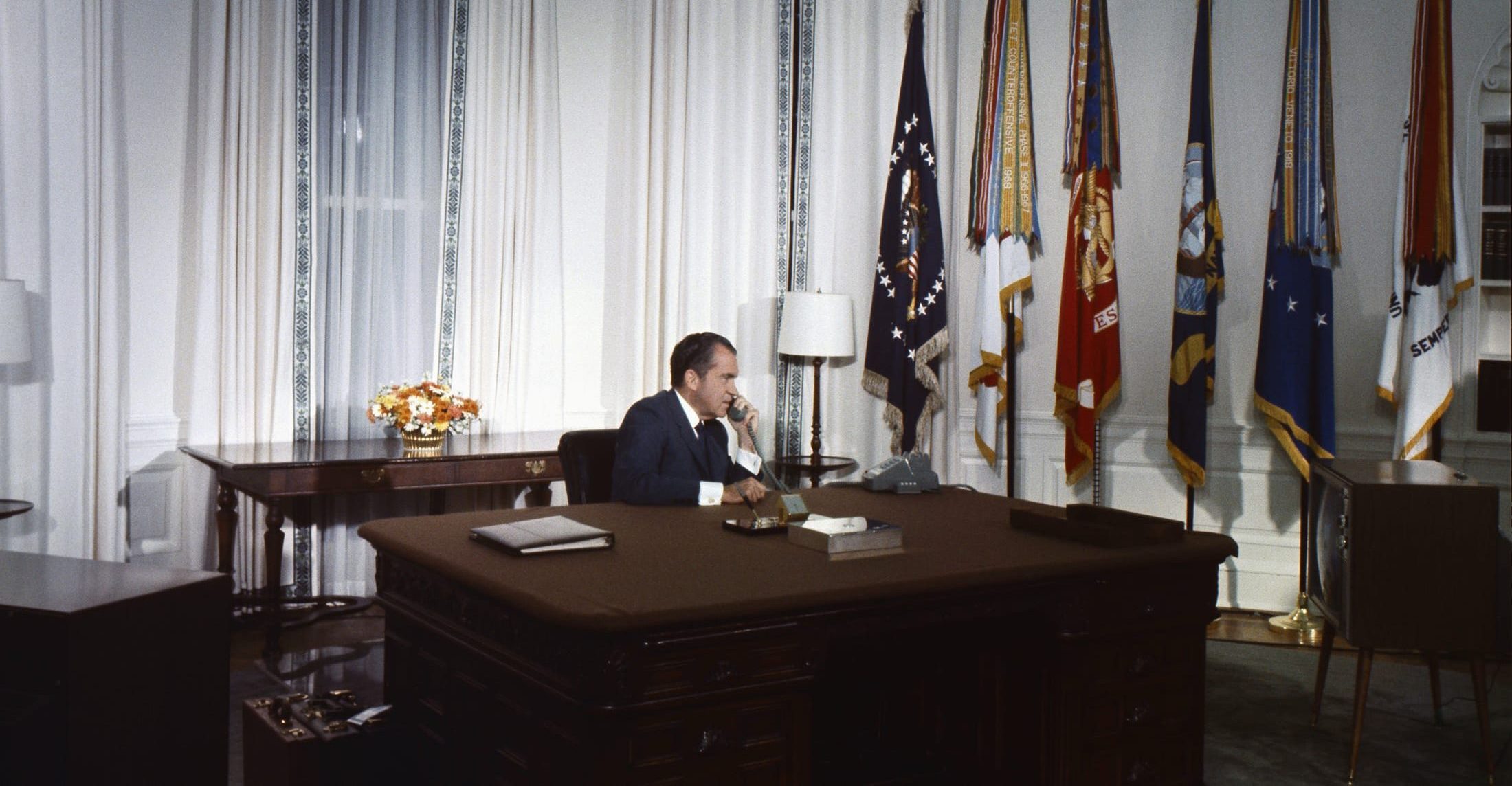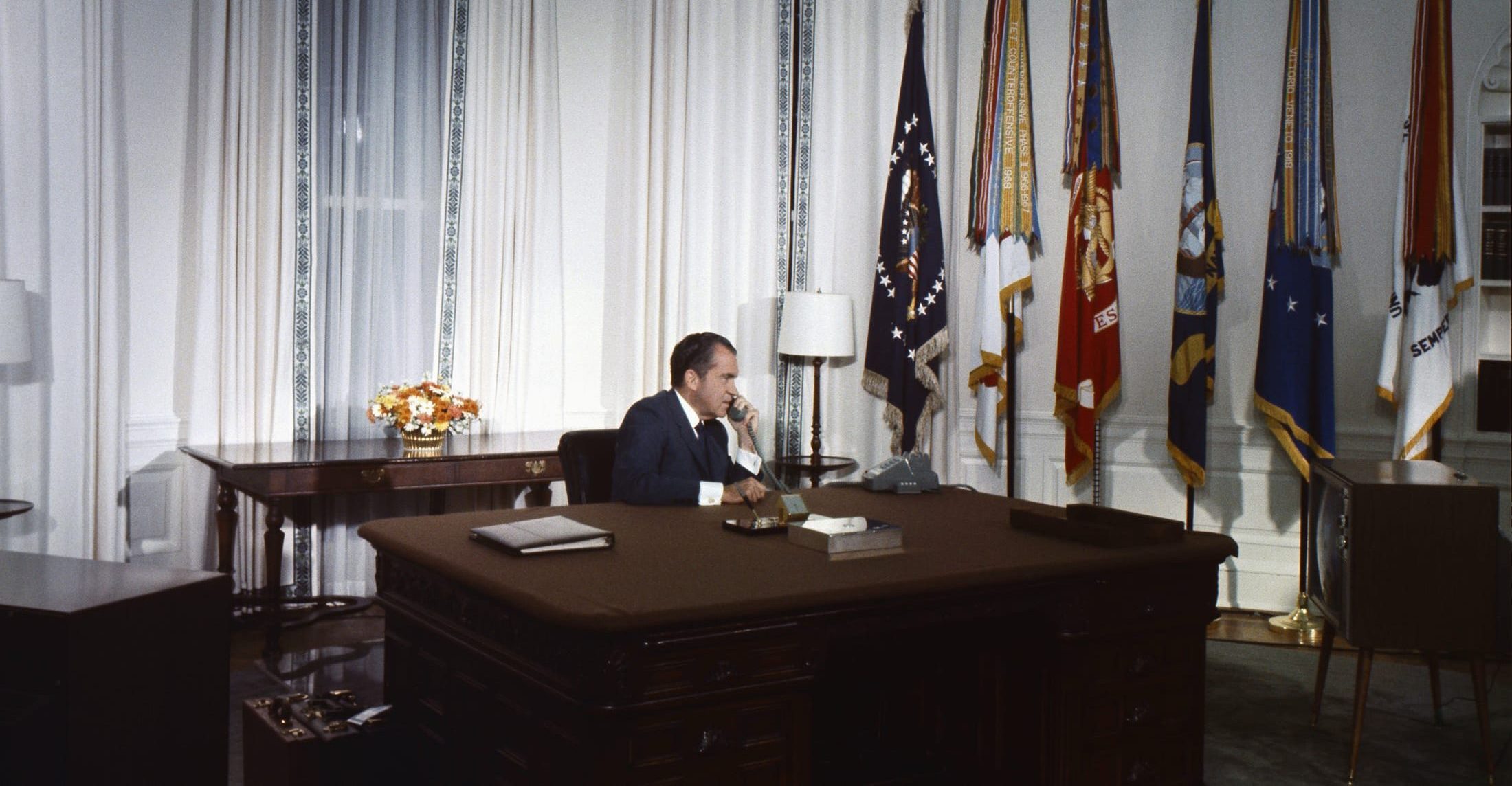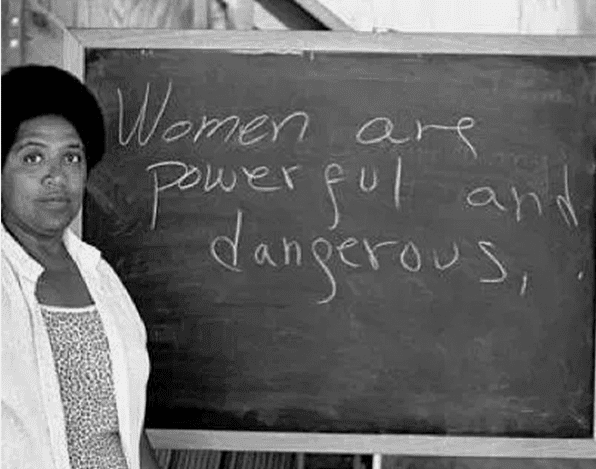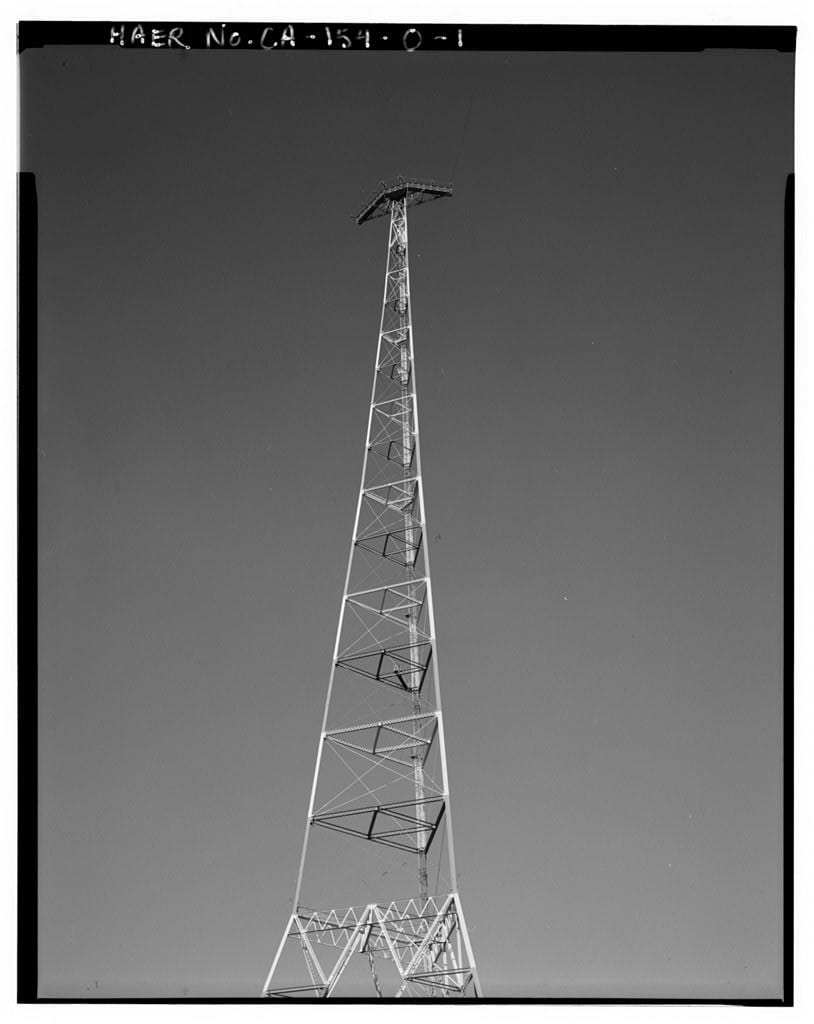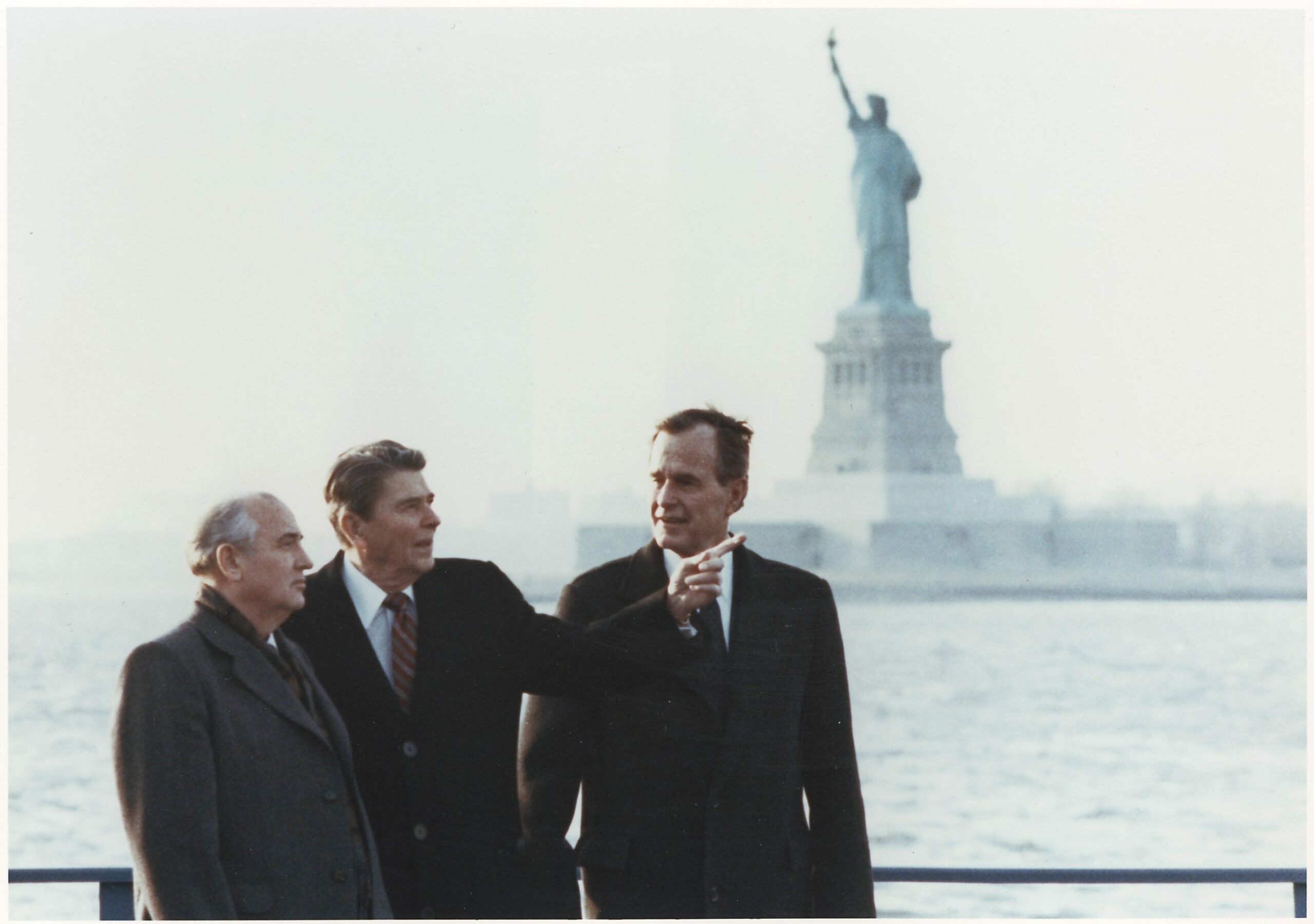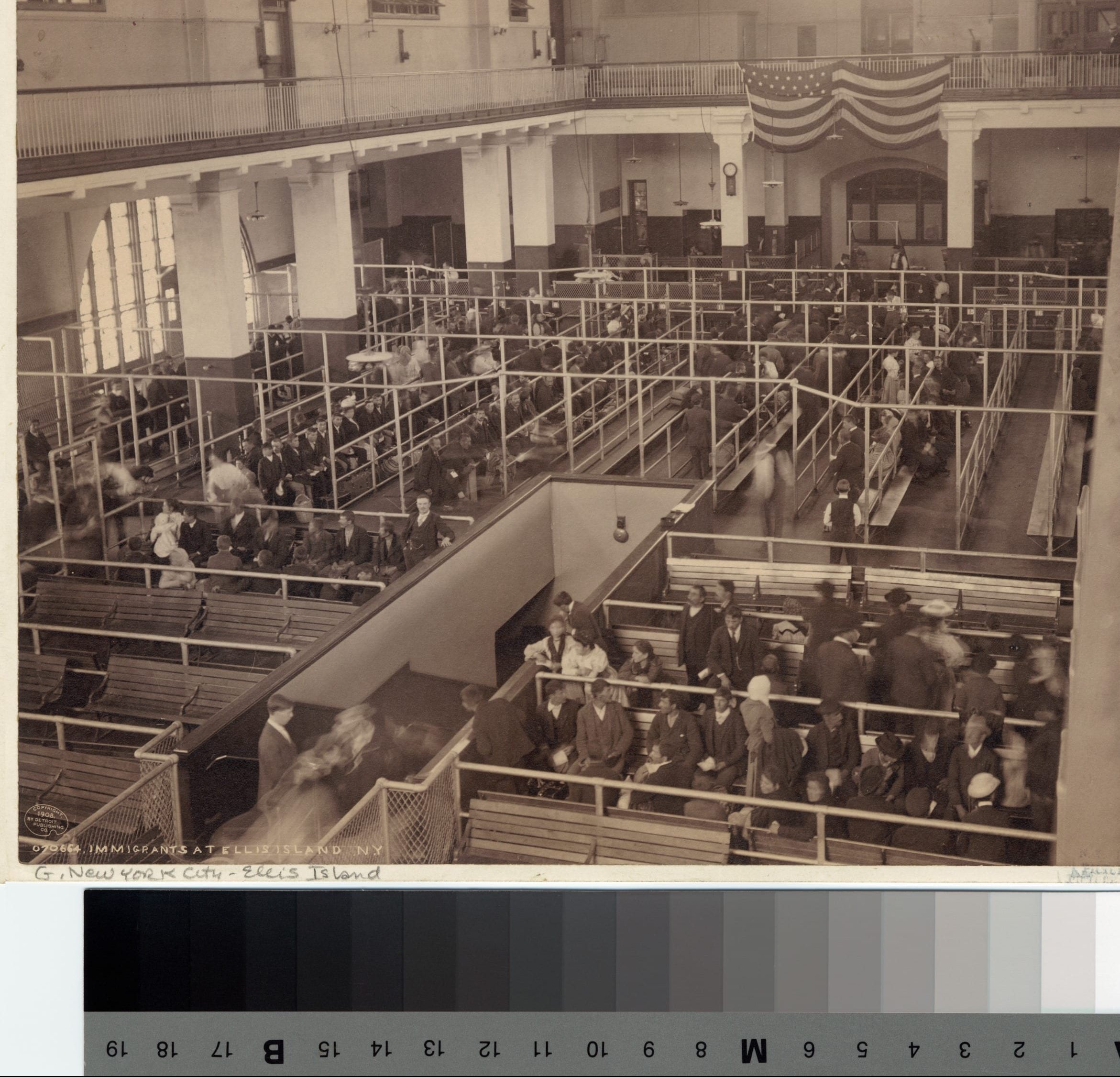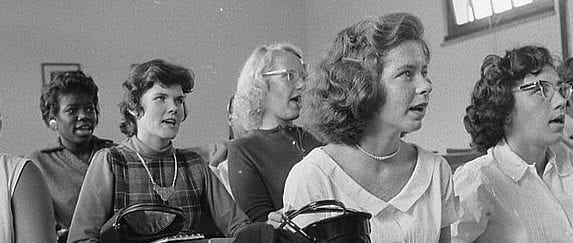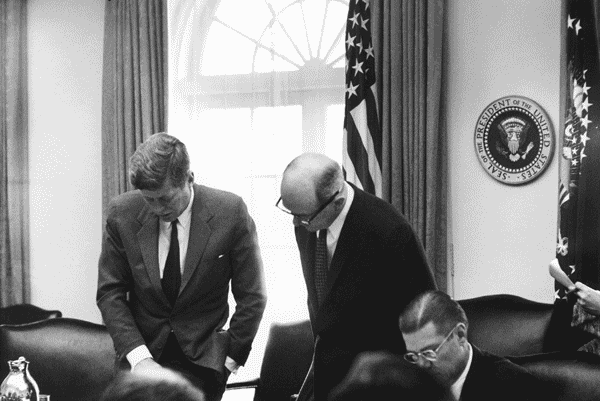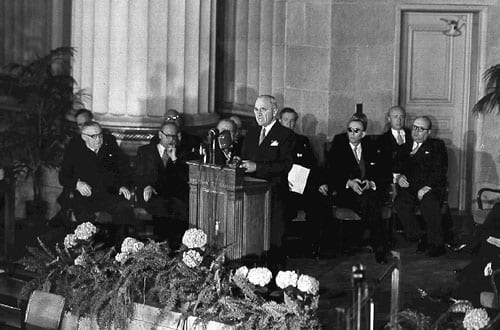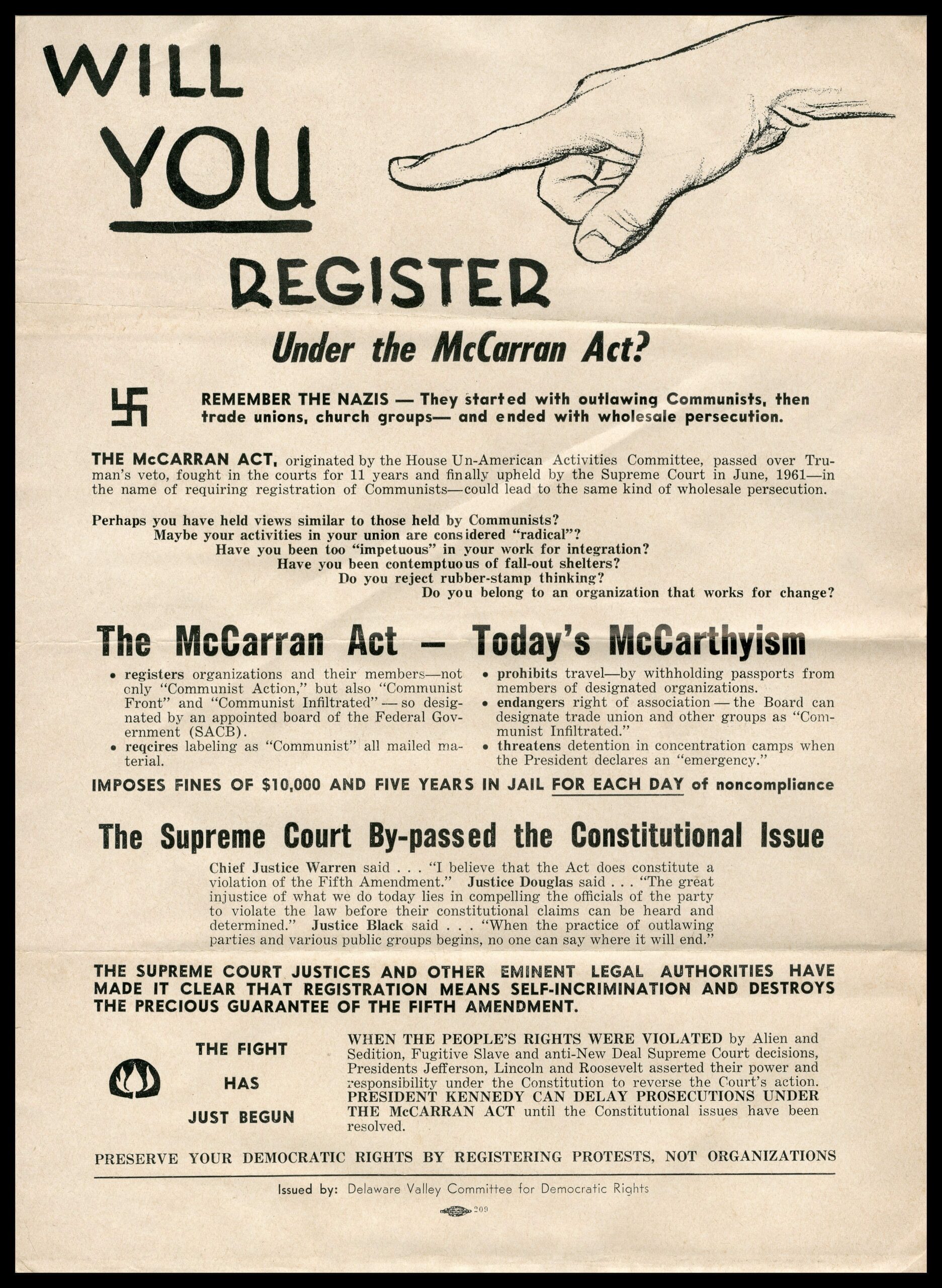
Introduction
Established in 1920, the United States Junior Chamber (Jaycees) is a nonprofit, private organization dedicated to assisting young men in philanthropic, educational, and civic enterprises. The by-laws of the national organization stipulated both regular and associate membership. Regular membership, which included privileges of voting and officeholding, was restricted to males age eighteen to thirty-five. Associate membership did not include these privileges but was open to women and older men. In disregard of the national by-laws, the Minnesota chapter admitted women as regular members with voting and officeholding rights. The national organization sought to revoke the chapter’s membership for this infraction. Kathryn R. Roberts, commissioner of the Minnesota Department of Human Rights, sued in defense of the Minnesota chapter. She claimed that the national organization’s ban on women from regular membership violated the Minnesota Human Rights Act as “an unfair discriminatory practice.” The Court of Appeals for the Eighth Circuit ruled in favor of the national Jaycees against Roberts.
The Supreme Court reversed in a unanimous 7–0 decision. (Chief Justice Warren Burger [1907–1995] and Justice Harry Blackmun [1908–1999] did not take part in the case.) Roberts v. United States Jaycees was the first case in which the Court sought to balance the group rights of association with the state’s interest in preventing discrimination. In striking this balance, Brennan’s opinion distinguished a broad spectrum of different kinds of associations and their corresponding levels of First Amendment protection. In sum, while affirming that the First Amendment includes a right to association, Justice William J. Brennan (1906–1997) concluded that this right is not absolute.
Source: 468 U.S. 609, https://www.law.cornell.edu/supremecourt/text/468/609.
JUSTICE BRENNAN delivered the opinion of the Court.
This case requires us to address a conflict between a state’s efforts to eliminate gender-based discrimination against its citizens and the constitutional freedom of association asserted by members of a private organization. In the decision under review, the Court of Appeals for the Eighth Circuit concluded that, by requiring the United States Jaycees to admit women as full voting members, the Minnesota Human Rights Act violates the First and Fourteenth Amendment rights of the organization’s members. We . . . now reverse. . . .
Our decisions have referred to constitutionally protected “freedom of association” in two distinct senses. In one line of decisions, the Court has concluded that choices to enter into and maintain certain intimate human relationships must be secured against undue intrusion by the state because of the role of such relationships in safeguarding the individual freedom that is central to our constitutional scheme. In this respect, freedom of association receives protection as a fundamental element of personal liberty. In another set of decisions, the Court has recognized a right to associate for the purpose of engaging in those activities protected by the First Amendment—speech, assembly, petition for the redress of grievances, and the exercise of religion. The Constitution guarantees freedom of association of this kind as an indispensable means of preserving other individual liberties. The intrinsic and instrumental features of constitutionally protected association may, of course, coincide. In particular, when the state interferes with individuals’ selection of those with whom they wish to join in a common endeavor, freedom of association in both of its forms may be implicated. The Jaycees contend that this is such a case. Still, the nature and degree of constitutional protection afforded freedom of association may vary depending on the extent to which one or the other aspect of the constitutionally protected liberty is at stake in a given case. We therefore find it useful to consider separately the effect of applying the Minnesota statute to the Jaycees on what could be called its members’ freedom of intimate association and their freedom of expressive association.
The Court has long recognized that, because the Bill of Rights is designed to secure individual liberty, it must afford the formation and preservation of certain kinds of highly personal relationships a substantial measure of sanctuary from unjustified interference by the state (e.g., Pierce v. Society of Sisters, 1925; Meyer v. Nebraska, 1923). Without precisely identifying every consideration that may underlie this type of constitutional protection, we have noted that certain kinds of personal bonds have played a critical role in the culture and traditions of the nation by cultivating and transmitting shared ideals and beliefs; they thereby foster diversity and act as critical buffers between the individual and the power of the state. Moreover, the constitutional shelter afforded such relationships reflects the realization that individuals draw much of their emotional enrichment from close ties with others. Protecting these relationships from unwarranted state interference therefore safeguards the ability independently to define one’s identity that is central to any concept of liberty.
The personal affiliations that exemplify these considerations, and that therefore suggest some relevant limitations on the relationships that might be entitled to this sort of constitutional protection, are those that attend the creation and sustenance of a family—marriage (e.g., Zablocki v. Redhail); childbirth (e.g., Carey v. Population Services International); the raising and education of children (e.g., Smith v. Organization of Foster Families); and cohabitation with one’s relatives (e.g., Moore v. East Cleveland). Family relationships, by their nature, involve deep attachments and commitments to the necessarily few other individuals with whom one shares not only a special community of thoughts, experiences, and beliefs, but also distinctively personal aspects of one’s life. Among other things, therefore, they are distinguished by such attributes as relative smallness, a high degree of selectivity in decisions to begin and maintain the affiliation, and seclusion from others in critical aspects of the relationship. As a general matter, only relationships with these sorts of qualities are likely to reflect the considerations that have led to an understanding of freedom of association as an intrinsic element of personal liberty. Conversely, an association lacking these qualities—such as a large business enterprise—seems remote from the concerns giving rise to this constitutional protection. Accordingly, the Constitution undoubtedly imposes constraints on the state’s power to control the selection of one’s spouse that would not apply to regulations affecting the choice of one’s fellow employees.
Between these poles, of course, lies a broad range of human relationships that may make greater or lesser claims to constitutional protection from particular incursions by the state. Determining the limits of state authority over an individual’s freedom to enter into a particular association therefore unavoidably entails a careful assessment of where that relationship’s objective characteristics locate it on a spectrum from the most intimate to the most attenuated of personal attachments. We need not mark the potentially significant points on this terrain with any precision. We note only that factors that may be relevant include size, purpose, policies, selectivity, congeniality, and other characteristics that, in a particular case, may be pertinent. In this case, however, several features of the Jaycees clearly place the organization outside of the category of relationships worthy of this kind of constitutional protection. The undisputed facts reveal that the local chapters of the Jaycees are large and basically unselective groups. At the time of the state administrative hearing, the Minneapolis chapter had approximately 430 members, while the St. Paul chapter had about 400. Apart from age and sex, neither the national organization nor the local chapters employ any criteria for judging applicants for membership, and new members are routinely recruited and admitted with no inquiry into their backgrounds. In fact, a local officer testified that he could recall no instance in which an applicant had been denied membership on any basis other than age or sex. Furthermore, despite their inability to vote, hold office, or receive certain awards, women affiliated with the Jaycees attend various meetings, participate in selected projects, and engage in many of the organization’s social functions. Indeed, numerous nonmembers of both genders regularly participate in a substantial portion of activities central to the decision of many members to associate with one another, including many of the organization’s various community programs, awards ceremonies, and recruitment meetings.
In short, the local chapters of the Jaycees are neither small nor selective. Moreover, much of the activity central to the formation and maintenance of the association involves the participation of strangers to that relationship. Accordingly, we conclude that the Jaycees chapters lack the distinctive characteristics that might afford constitutional protection to the decision of its members to exclude women. We turn therefore to consider the extent to which application of the Minnesota statute to compel the Jaycees to accept women infringes the group’s freedom of expressive association.
An individual’s freedom to speak, to worship, and to petition the government for the redress of grievances could not be vigorously protected from interference by the state unless a correlative freedom to engage in group effort toward those ends were not also guaranteed. According protection to collective effort on behalf of shared goals is especially important in preserving political and cultural diversity, and in shielding dissident expression from suppression by the majority. Consequently, we have long understood as implicit in the right to engage in activities protected by the First Amendment a corresponding right to associate with others in pursuit of a wide variety of political, social, economic, educational, religious, and cultural ends. In view of the various protected activities in which the Jaycees engages that right is plainly implicated in this case.
Government actions that may unconstitutionally infringe upon this freedom can take a number of forms. Among other things, government may seek to impose penalties or withhold benefits from individuals because of their membership in a disfavored group; it may attempt to require disclosure of the fact of membership in a group seeking anonymity (e.g., Brown v. Socialist Workers ’74 Campaign Committee, 1982); and it may try to interfere with the internal organization or affairs of the group (e.g., Cousins v. Wigoda, 1975). By requiring the Jaycees to admit women as full voting members, the Minnesota act works an infringement of the last type. There can be no clearer example of an intrusion into the internal structure or affairs of an association than a regulation that forces the group to accept members it does not desire. Such a regulation may impair the ability of the original members to express only those views that brought them together. Freedom of association therefore plainly presupposes a freedom not to associate.
The right to associate for expressive purposes is not, however, absolute. Infringements on that right may be justified by regulations adopted to serve compelling state interests, unrelated to the suppression of ideas, that cannot be achieved through means significantly less restrictive of associational freedoms. We are persuaded that Minnesota’s compelling interest in eradicating discrimination against its female citizens justifies the impact that application of the statute to the Jaycees may have on the male members’ associational freedoms.
On its face, the Minnesota act does not aim at the suppression of speech, does not distinguish between prohibited and permitted activity on the basis of viewpoint, and does not license enforcement authorities to administer the statute on the basis of such constitutionally impermissible criteria. Nor does the Jaycees contend that the act has been applied in this case for the purpose of hampering the organization’s ability to express its views. Instead, as the Minnesota Supreme Court explained, the act reflects the state’s strong historical commitment to eliminating discrimination and assuring its citizens equal access to publicly available goods and services. That goal, which is unrelated to the suppression of expression, plainly serves compelling state interests of the highest order. . . .
By prohibiting gender discrimination in places of public accommodation, the Minnesota act protects the state’s citizenry from a number of serious social and personal harms. In the context of reviewing state actions under the equal protection clause, this Court has frequently noted that discrimination based on archaic and overbroad assumptions about the relative needs and capacities of the sexes forces individuals to labor under stereotypical notions that often bear no relationship to their actual abilities. It thereby both deprives persons of their individual dignity and denies society the benefits of wide participation in political, economic, and cultural life. These concerns are strongly implicated with respect to gender discrimination in the allocation of publicly available goods and services. Thus, in upholding Title II of the Civil Rights Act of 1964, 78 Stat. 243, 42 U.S.C. § 2000a, which forbids race discrimination in public accommodations, we emphasized that its “fundamental object . . . was to vindicate ‘the deprivation of personal dignity that surely accompanies denials of equal access to public establishments’ ” (Heart of Atlanta Motel, Inc. v. United States, 1964). That stigmatizing injury, and the denial of equal opportunities that accompanies it, is surely felt as strongly by persons suffering discrimination on the basis of their sex as by those treated differently because of their race.
Nor is the state interest in assuring equal access limited to the provision of purely tangible goods and services. A state enjoys broad authority to create rights of public access on behalf of its citizens. Like many states and municipalities, Minnesota has adopted a functional definition of public accommodations that reaches various forms of public, quasi-commercial conduct. This expansive definition reflects a recognition of the changing nature of the American economy and of the importance, both to the individual and to society, of removing the barriers to economic advancement and political and social integration that have historically plagued certain disadvantaged groups, including women. See Califano v. Webster (1977) (per curiam); Frontiero v. Richardson. Thus, in explaining its conclusion that the Jaycees local chapters are “place[s] of public accommodations” within the meaning of the act, the Minnesota court noted the various commercial programs and benefits offered to members, and stated that “leadership skills are ‘goods,’ [and] business contacts and employment promotions are ‘privileges’ and ‘advantages.’ ” Assuring women equal access to such goods, privileges, and advantages clearly furthers compelling state interests.
In applying the act to the Jaycees, the state has advanced those interests through the least restrictive means of achieving its ends. Indeed, the Jaycees has failed to demonstrate that the act imposes any serious burdens on the male members’ freedom of expressive association. To be sure, as the Court of Appeals noted, a “not insubstantial part” of the Jaycees’ activities constitutes protected expression on political, economic, cultural, and social affairs. Over the years, the national and local levels of the organization have taken public positions on a number of diverse issues, and members of the Jaycees regularly engage in a variety of civic, charitable, lobbying, fundraising, and other activities worthy of constitutional protection under the First Amendment. There is, however, no basis in the record for concluding that admission of women as full voting members will impede the organization’s ability to engage in these protected activities or to disseminate its preferred views. The act requires no change in the Jaycees’ creed of promoting the interests of young men, and it imposes no restrictions on the organization’s ability to exclude individuals with ideologies or philosophies different from those of its existing members. Moreover, the Jaycees already invites women to share the group’s views and philosophy and to participate in much of its training and community activities. Accordingly, any claim that admission of women as full voting members will impair a symbolic message conveyed by the very fact that women are not permitted to vote is attenuated, at best.
While acknowledging that “the specific content of most of the resolutions adopted over the years by the Jaycees has nothing to do with sex,” the Court of Appeals nonetheless entertained the hypothesis that women members might have a different view or agenda with respect to these matters so that, if they are allowed to vote, “some change in the Jaycees’ philosophical cast can reasonably be expected.” It is similarly arguable that, insofar as the Jaycees is organized to promote the views of young men whatever those views happen to be, admission of women as voting members will change the message communicated by the group’s speech because of the gender-based assumptions of the audience. Neither supposition, however, is supported by the record. In claiming that women might have a different attitude about such issues as the federal budget, school prayer, voting rights, and foreign relations, or that the organization’s public positions would have a different effect if the group were not “a purely young men’s association,” the Jaycees relies solely on unsupported generalizations about the relative interests and perspectives of men and women. Although such generalizations may or may not have a statistical basis in fact with respect to particular positions adopted by the Jaycees, we have repeatedly condemned legal decision making that relies uncritically on such assumptions. In the absence of a showing far more substantial than that attempted by the Jaycees, we decline to indulge in the sexual stereotyping that underlies appellee’s[1] contention that, by allowing women to vote, application of the Minnesota act will change the content or impact of the organization’s speech.
In any event, even if enforcement of the act causes some incidental abridgment of the Jaycees’ protected speech, that effect is no greater than is necessary to accomplish the state’s legitimate purposes. As we have explained, acts of invidious discrimination in the distribution of publicly available goods, services, and other advantages cause unique evils that government has a compelling interest to prevent—wholly apart from the point of view such conduct may transmit. Accordingly, like violence or other types of potentially expressive activities that produce special harms distinct from their communicative impact, such practices are entitled to no constitutional protection. In prohibiting such practices, the Minnesota act therefore “responds precisely to the substantive problem which legitimately concerns” the state and abridges no more speech or associational freedom than is necessary to accomplish that purpose.
We turn finally to appellee’s contentions that the Minnesota act, as interpreted by the state’s highest court, is unconstitutionally vague and overbroad. The void-for-vagueness doctrine reflects the principle that “a statute which either forbids or requires the doing of an act in terms so vague that [persons] of common intelligence must necessarily guess at its meaning and differ as to its application violates the first essential of due process of law” (Connally v. General Construction Co., 1926). The requirement that government articulate its aims with a reasonable degree of clarity ensures that state power will be exercised only on behalf of policies reflecting an authoritative choice among competing social values, reduces the danger of caprice and discrimination in the administration of the laws, enables individuals to conform their conduct to the requirements of law, and permits meaningful judicial review.
We have little trouble concluding that these concerns are not seriously implicated by the Minnesota act, either on its face or as construed in this case. In deciding that the act reaches the Jaycees, the Minnesota Supreme Court used a number of specific and objective criteria—regarding the organization’s size, selectivity, commercial nature, and use of public facilities—typically employed in determining the applicability of state and federal antidiscrimination statutes to the membership policies of assertedly private clubs. . . .
The contrast between the Jaycees and the Kiwanis Club drawn by the Minnesota court also disposes of appellee’s contention that the act is unconstitutionally overbroad. The Jaycees argues that the statute is “susceptible of sweeping and improper application,” because it could be used to restrict the membership decisions of wholly private groups organized for a wide variety of political, religious, cultural, or social purposes. Without considering the extent to which such groups may be entitled to constitutional protection from the operation of the Minnesota act, we need only note that the Minnesota Supreme Court expressly rejected the contention that the Jaycees should “be viewed analogously to private organizations such as the Kiwanis International Organization.” The state court’s articulated willingness to adopt limiting constructions that would exclude private groups from the statute’s reach, together with the commonly used and sufficiently precise standards it employed to determine that the Jaycees is not such a group, establish that the act, as currently construed, does not create an unacceptable risk of application to a substantial amount of protected conduct.
The judgment of the Court of Appeals is Reversed.
- 1. The appellee is the party against whom an appeal is filed.

Conversation-based seminars for collegial PD, one-day and multi-day seminars, graduate credit seminars (MA degree), online and in-person.





